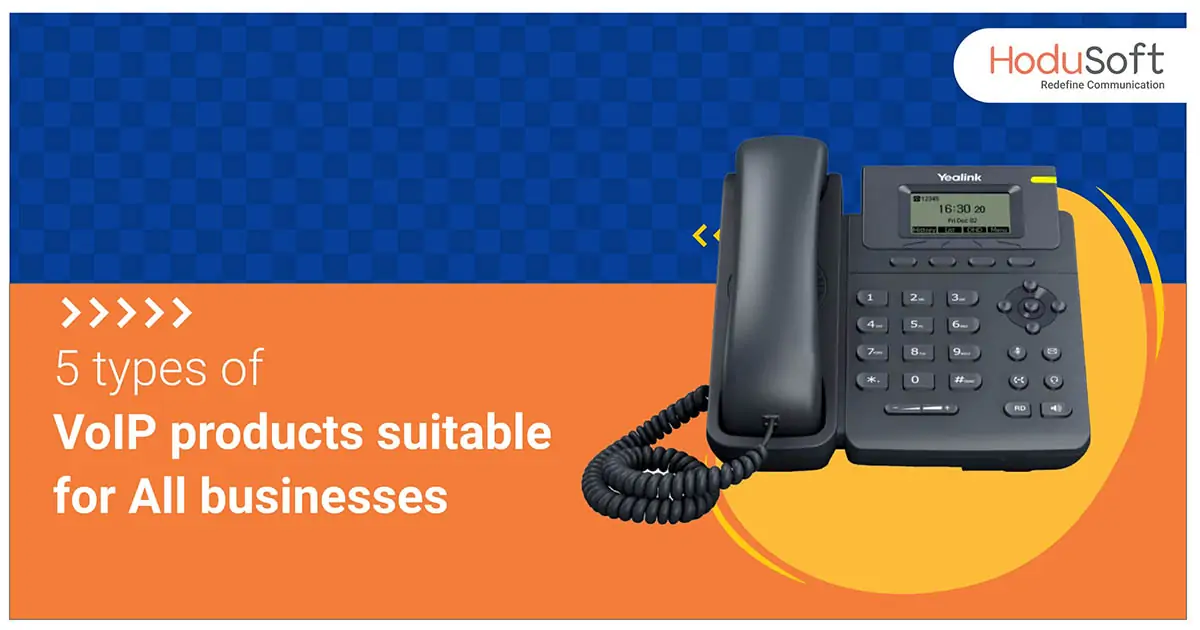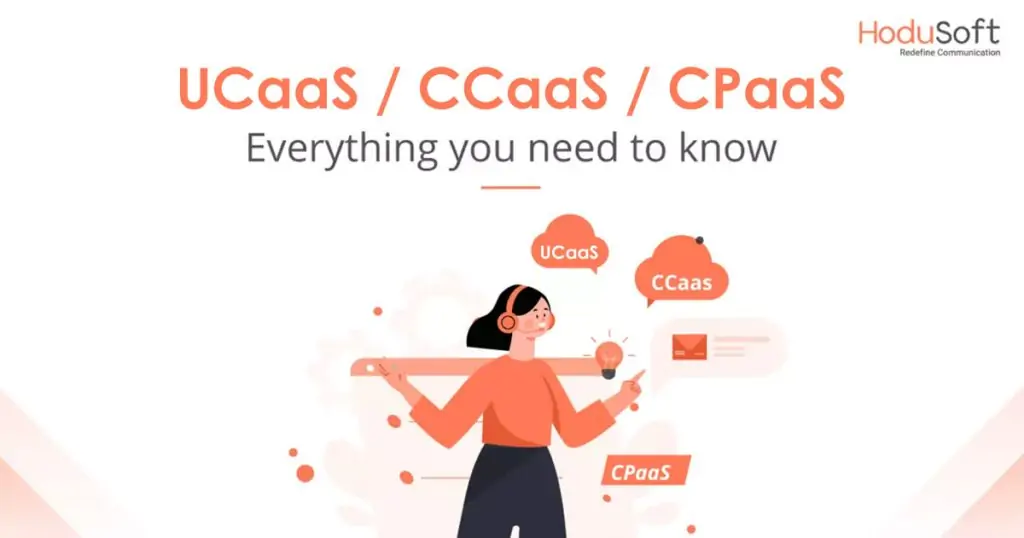5 types of VoIP products suitable for all businesses
From the era of hard-wired cabled phones to now we have come a long way. With the rise in hybrid work, VoIP (Voice over Internet Protocol) is the most favored business communication solution.
No matter how many extensions you’ve got, where your employees are located, or what devices they are using, the essential VoIP communication products are the lifeblood of businesses now. They are used to manage all voice and video communication. The new and advanced versions also offer features like video conferencing and team collaboration. Combining those features with subscription-based pricing is generally much less costly than an old-fashioned PSTN phone.
Top Reasons For Businesses To Use VoIP?
One of the primary reasons businesses choose a VoIP plan is to help streamline workflow, lessen the number of tools demanded to conduct work, increase productivity, and better communication across the entire company. According to a study by Gartner, businesses can see an average saving of 50 to 75 % as they switch to VoIP.
Key primary of using VoIP come from:
- Cost
- Availability
- Inflexibility
- Voice Quality
- Extra/ Less Precious Features
Shifting to VoIP-based systems is now easier than ever. With the marketplace now growing each day with new VoIP products makers, you have plenty of options to select your preferred vendor from.
Here we have listed 5 must-have VoIP products that are suitable for every kind of business, notwithstanding size, industry, and core functionality. Let’s have a look.
5 types of VoIP products that work for every business
-
Cloud Contact Center software
A cloud contact center software is hosted over the internet, which takes minimum time to place and involves minimum outspoken capital. VoIP for businesses uses cloud contact center software for inflexibility and to reduce hardware setup charges, IT operation, and ensure continued client service through a variety of voice and digital channels.
Contact center software integrations integrate workflow operating systems, CRM (Customer relationship management) software, and other heritage systems. This also manages omnichannel relations and lets your users reach you on their preferred channel using expansive integration capabilities.
You can get a more effective call routing process using CTI (Computer Telephony Integration). Features like toolbar integration, screen pop-ups, and two-way synchronization of information enable agents to recollect client information and answer the calls with a warm launch to better the client experience.
-
WebRTC
WebRTC (Web Real-Time Communications) is an open-source design that enables real-time voice, text, and video communications capabilities between web browsers and devices. It provides software designs with operation programming interfaces (APIs) written in JavaScript, APIs, and HyperText Markup Language to bed communications technologies within web browsers. It’s designed to make audio, video, and data communication between browsers user-friendly and easy to apply. This operates with utmost major web browsers.
WebRTC APIs perform several crucial functions, including penetrating and recording video-, audio-and text-based data from devices to initiating, covering, and ending P2P (peer-to-peer) connections between devices via browsers and easing bidirectional data transfer over multiple data channels.
-
SIP Trunk Technology
The SIP(Session Initiation Protocol) transmits audio and video data through the data network, allowing VoIP users to use participating lines and increase their communication flexibility. Because all data is transferred over the Internet, businesses can use SIP trunk technology as volition to traditional analog telephones.
SIP Trunk technology is really flexible and works well with cloud technology and integrates efficiently with PBX (Private Branch Exchange) systems. They can also lead to significant cost savings for the association, as it only pays for the minutes used and reduces the need for hardware and physical telephone lines.
-
Hosted IP PBX Technology
Hosted PBX technology is a cloud-based system that reduces the costs of the phone set up in an organization and offers numerous benefits compared to traditional telephones. Businesses connect to a cloud-based PBX network through their IP (Internet Protocol) network, and because it’s based on the cloud.
The service provider has the onus for hardware, software, conservation, security, and updates with the Hosted PBX service provider. This can reduce the conservation and training requirements of businesses, as well as the original investment to buy hardware and set up an enterprise telephone system.
It also gives small and medium-sized businesses access to a user-friendly operation panel, through which they can manage and cover their business phone and call system. Organizations can also take advantage of features similar to hold music, call queuing, IVR, online fax, Inner converse, etc. It also gives small and medium-sized businesses access to a user-friendly operation runner, through which they can manage and cover their business phone and call system.
-
Managed IP PBX (Internet Protocol Private Branch Exchange)
This type of VoIP is similar to Hosted IP PBX answers. Using this integrated communication answer, the responsibility to manage the communication system is on a third party’s shoulder, but rather than locating hardware outside the company, the outfit is stored within the association.
A managed PBX provider generally charges based on the number of telephone lines and installs the necessary outfit. Configuration, streamlining, and upgrading of technology will also be the responsibility of the service provider.
It is based on Hosted PBX technology, and it’s the best answer for small businesses and startups that want to use all features of VoIP service without spending plutocrats on outfits and waiters.
This service is based on the Cloud and has helped to increase the productivity of businesses by furnishing various features similar as the possibility of making phone calls with IP Phone, web operation and mobile operation, the possibility of transferring online fax, Interorganizational chats, IVR, voicemail, call line, and so on.
Conclusion
With cloud-based VoIP products, you outsource the phone system to your VoIP provider. This implies that there’s no buying hardware or investing your resources into maintaining the systems since your provider will make sure of everything for a fixed figure. You can also add or remove users easily. The con is that you’re not in total control of the hardware and have to depend upon your provider’s expertise to make sure system trustability and security.
Want more detailed information about VoIP and the way to decide on the foremost suitable VoIP products? Check with our professionals.


